Out of the Mainstream: Water Rights, Water Territories and the Politics of Scale and Identity
An excerpt from the introductory chapter of Out of the Mainstream: Water Rights, Politics and Identity, a book on the effect modern society has on water culture and indigenous communities
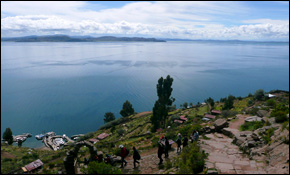
A view of Lake Titicaca from the Taquile Island in Peru, which is a highlighted case study in chapter nine of the book.
As shown by the chapters in this book, the modern world’s power structures can usurp or threaten the rights of rural and indigenous societies. Since ancient times, ruling groups have continually tried to expropriate and control local community resources such as water by strategic use of cultural politics. Enlisting community labour and regulating water rights, for instance, are part of a process of identity formation. But dominant groups have taken over both resource ownership and such rules for water management, manipulating and confiscating patterns of identification. The quest to shape users’ water control norms, beliefs, identities and practices, in order to secure their obedience to, and compliance with, a dominant model for water control and ‘normal’ water rights, is at the heart of the issue (Boelens, 2009; compare Foucault, 1991).
Most contemporary Latin American nation states have promoted a form of multiculturalism that actually destroys community management of rights when it does not follow the market’s rules of play. The latest neoliberal wave in the Andean countries is fostered by banks and international agencies and by states themselves which are reordering their policies to conform to liberal theory and to please international institutions. Thus, globalizing forces strengthen the market-based institutional models that threaten to co-opt local systems and community management forms (compare Hendriks, 1998; Budds and McGranahan, 2003; Swyngedouw, 2005; Bakker, 2007, 2010; Perreault, 2008). National and international policies do not attempt to adapt to local contexts, but rather seek to transform and control them. It is the users’ universe that is to be adapted (Boelens, 2008). But such changes require more than enacting new laws. A water-political order becomes institutionalized in a users’ society only when it becomes integrated within its economic, moral and ideological structure. Laws cannot act, only societal forces can shape such change (Cohen 1986; von Benda-Beckmann et al, 1998; Roth et al, 2005). Andean user collectives therefore resist externally imposed policies that attempt to impose ‘normalization’ and to take control of their water rights and management systems. Their resistance includes opposing current distributive inequalities and undemocratic forms of representation, challenging the rules of the game and the very politics of truth and identity themselves.
In addition to the matter of how water is distributed, the dispute is fundamentally about the definition of rights to use water and local autonomy for its control (Gelles, 2002; Oré, 2005; Guevara-Gil, 2006). The multidimensional importance of water rights in indigenous and rural communities of the Andes can be seen in the way in which struggles over water have materialized. The disputes dynamically link four different but connected ‘echelons of rights’ that are at the root of water conflicts (for a conceptualization of the echelons of rights analysis (ERA), see: Boelens and Zwarteveen, 2005; Boelens, 2008). Together, these echelons give substance to water rights struggles and highlight how they involve the formulation and materialization of water rights in the following fields of contention:
- Access, withdrawal and use of water, and related infrastructural, material
and financial resources; - Formulation of the rules: contents of water rights, obligations and management
rules, and of mechanisms to acquire rights; - The legitimate authority to make decisions, establish the rules and enforce
rights; and - The discourses that challenge, impose, legitimize or defend particular water
policies and water-political orders.
In the fourth echelon, discourses are developed and invoked as ‘socio-technical, socio-natural organizers and political stabilizers’: conjunctions of power and knowledge that aim to create and proliferate the belief that particular policies and water rights orders are correct and self-evident. Discourses strategically connect all water rights domains, from the technical-physical to the cultural and metaphysical, to compose and glue together convenient water rights and truth orders. Society’s ruling groups seek to enrol and align humans, nature and thought within a single water governance system that is structured according to their interests to control locality and based on non-local rules, truths and frames of reference. In reaction, local users’ collectives commonly resist and strategize to construct their own, alternative systems (Boelens, 2008).
These chapters offer a framework to understand how struggles over water arise at each of those four levels, implicating local norms and forms of control and bringing the culture and the identities of the user groups into conflict with modernist water policies. In these struggles, local user organizations trying to defend their autonomy do not avoid interaction with the state or development institutions. Many communities request collaboration. Through such interaction, the state, the users and third parties all try to achieve their own,
frequently contradictory, purposes. Here, commonly, local user groups pursue state resources and international funding without handing over local normative power. This raises the question of power: who controls the activities and resources of whom and how? Each side tries to conscript the other in the action programme which they desire. This interaction is between entities with unequal power but a mutual need for each other’s resources, where each makes strategic use of some of the other’s techniques, norms and rules.
Cultural politics and the politics of identity, therefore, are inherent to dominant, control-externalizing strategies and to the power tactics of controllocalizing communities and water user collectives. Each seeks power over the applicable rules, rights and meanings of social practices. Each tries to shape identity and forms of subjectivity in divergent ways (see also Cohen, 1986; Foucault, 1991; Álvarez et al, 1998). In this struggle, the dynamic assertion of water rights diversity is an expression of resistance. By creating or adopting water rights that are profoundly intertwined with local identity formation, a world of difference is perpetuated below the outer appearances of uniformity. Multilayered collective water-rights systems extend existing forms of legal pluralism, implicitly questioning the exclusiveness and self-evidence of formal state- and market-based water rules.
It follows that we need to examine how water user communities and networks construct new, diverse water rights and collective organizational forms in their struggles against control externalization. This process simultaneously implies the active construction and reconstruction of ‘water territory’ as a socio-productive and cultural political ‘home base’, as a rooted and multilayered ‘political water community’, as a scheme of mutual belonging that enables the rebirth of collective imagination. Such water territories involve socionatural webs with landscapes and waterscapes in which people live and make livelihoods and identities, for which people feel responsible, in which they are morally involved. Water territories, in this way, contrast with the essentially placeless irrigation systems and watershed plans that are determined by ‘technocracy’ and that have social arrangements that are presented as convenient arrangements – neutral, universal, timeless and void of context.
Increasingly, struggles to create and defend alternative water rights repertoires and to embed them within water territories are not limited to the local scale (see also Bebbington, 2001; Swyngedouw, 2004; Perreault, 2006). As several chapters show, control-localizing strategies implicate wider political objectives related to social transformation and reform of laws, discourses, governance frameworks and class, gender and ethnic structures. Local user groups engage in scalar politics and scalar alliances to build territorial alliances and networks that link diverse peoples, identities and places. They use these alliances to contest the processes of de-territorialization of water, the separation of water rights and decision-making powers from local livelihoods, and policies and actions that attack the integrity of their territories in general. Advocates of local water control thus have transcended existing boundaries, manageable units and assigned identities, and they continuously produce new webs and alliances for political, normative and scalar articulation (compare Foucault, 1982).
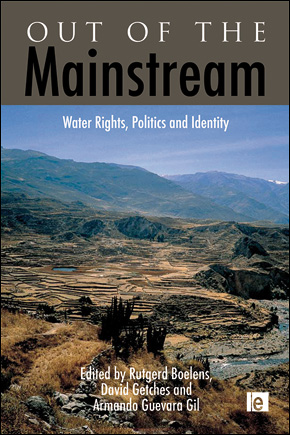
In the end, the water struggle exemplifies not only inter-user conflicts and community–state contradictions, but also the transnational policies and market forces resulting from globalization. Several chapters of Out of the Mainstream seek to examine how locally rooted water-user communities develop water control defence strategies, build systems of water rights and water management, and strengthen the definition of ‘home territories’ for water use. Some authors also show how action on a broader political scale can advance local efforts. This seems appropriate as many of the challenged institutional arrangements and water governance structures themselves emanate from higher levels such as states, transnational corporations and international water development agencies.
It appears that the power to compose or manipulate patterns of multiple scales is crucial. To meet the needs of local water users it is important to reconfigure the scale of water governance. The political ordering of water control and the contents of formal water rights require connecting them on the ground with local livelihoods and perspectives. Out of the Mainstream aims to contribute to understanding why water user collectives resist externally imposed change and why they seek creative reproduction of their own cultural and political norms, as well as different forms of democracy and political representation in formal water governance. Thus, the book looks at how asserting water rights pluralism and water identity-based distinctiveness animates challenges to commensuration and control by the dominant power structure. It analyses how local and indigenous communities reject the categories in which the dominating groups want to enclose them, while at the same time pursuing ways in which formal categories can be used for their own purposes. It analyses how political and legal action can be used to challenge dominant forms of power and to ‘localize’ water control by simultaneously deepening their own water rights systems and borrowing ideas from the dominant system. Along the way, indigenous people, campesinos and other marginalized water users are defending their alternative out-of-the-mainstream ideals as they struggle to protect their water domains.
Please read Circle of Blue’s interview, Q&A: David Getches on Water Rights for Indigenous Cultures, for more on David Getches.
Read a specific water rights case study in the Achamayo River Valley in Peru from Out of the Mainstream by downloading chapter nine on Circle of Blue. Also for more on water rights amongst indigenous communities, read excerpts from James G. Workman’s book on Botswana’s Bushmen that were previously featured on Circle of Blue.
Circle of Blue provides relevant, reliable, and actionable on-the-ground information about the world’s resource crises.

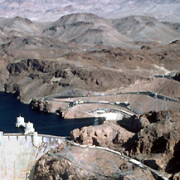
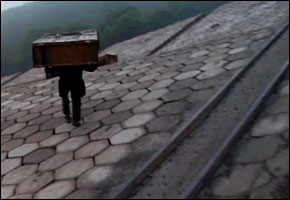
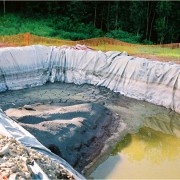


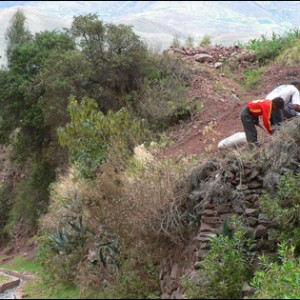
Leave a Reply
Want to join the discussion?Feel free to contribute!